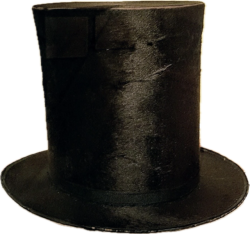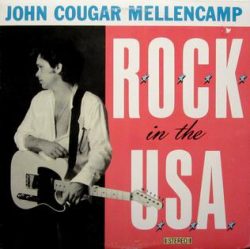Posted By RichC on April 9, 2025
Tariffs have long been a divisive topic in economics. For decades, mainstream economists have championed free trade, arguing that tariffs—essentially a tax on imports ultimately paid by consumers—hinder economic growth by disrupting the free flow of goods across borders.
For most of my life, I’ve been a proponent of free—but fair—trade. I believed in the principle that “a rising tide lifts all boats,” and that  less government intervention and lower taxes were the best ways to empower consumers. Free trade not only fosters economic efficiency but also reduces the likelihood of conflict by creating mutual interdependence among nations. In contrast, tariffs—as a form of taxation—distort markets by placing a thumb on the scale.
less government intervention and lower taxes were the best ways to empower consumers. Free trade not only fosters economic efficiency but also reduces the likelihood of conflict by creating mutual interdependence among nations. In contrast, tariffs—as a form of taxation—distort markets by placing a thumb on the scale.
Yet, not everyone agrees that tariffs are the villain they’re often made out to be. Some see them as a legitimate tool to address the downsides of globalization, unfair trade practices, and the protectionist barriers used by other countries.
Let’s begin with the conventional wisdom. Economists have traditionally viewed tariffs as a net negative. When a country imposes tariffs on imported goods, it drives up prices for its own consumers. The result? Less competition, higher costs, and a drag on efficiency. Free trade, on the other hand, encourages specialization—countries focus on producing what they do best, and consumers benefit from cheaper, higher-quality products. This logic has driven decades of trade liberalization, from the creation of the World Trade Organization to sweeping agreements like NAFTA.
The data supports this view: global economic growth has surged under freer trade. However, for many Americans, the benefits of globalization have come with a bitter aftertaste—lost jobs, shuttered factories, and the growing perception that the system no longer works in their favor. This is where tariffs reenter the conversation.

When manufacturing jobs vanish in regions like the Rust Belt, the promised retraining programs and new opportunities often fail to materialize. Meanwhile, foreign competitors sometimes enjoy advantages such as lax labor standards, government subsidies, or currency manipulation—conditions that feel less like fair competition and more like exploitation.
From this perspective, tariffs become a counterpunch. The United States, with its vast consumer market, has leverage—why not use it? Under President Trump’s “Liberation Day” declaration, tariffs were used as a tool to protect American workers and to pressure trading partners into fairer deals. Consider the trade war with China: tariffs on hundreds of billions of dollars’ worth of goods were intended to address long-standing issues like intellectual property theft and trade imbalances. Whether they succeeded fully remains a matter of debate.
Beyond the economic implications, tariffs carry political weight. They convey strength—a willingness to stand up for the “little guy” against the impersonal forces of globalization. This has made them particularly appealing in current U.S. policy, especially in sectors such as steel and aluminum, which have strong constituencies in politically significant states. Tariffs are now seen not only as an economic tool but also as a matter of national security—critical to ensuring the country’s industrial capacity in the event of another global conflict.

Still, tariffs carry broad economic costs. They raise input prices for businesses and ultimately increase costs for consumers. Retaliation is another risk—as seen when American soybean farmers lost export markets during recent trade disputes. The tension is inescapable: tariffs are a high-stakes gamble, not a silver bullet.
To free-trade purists, tariffs are an outdated and blunt instrument. To others, they represent a means of reclaiming control in a global economy that has left too many behind. As international trade continues to evolve, the debate over tariffs isn’t going away. In fact, they remain a fixture in global economic policy—whether the United States embraces them or not.
Whether viewed as a strategic lever or a flawed relic, tariffs force us to confront the trade-offs in today’s deeply interconnected world.
Category: Archive, Blogs, News, Politics |
1 Comment
Tags: global, tariff, tariffs, thoughts, trade, trump

.jpg)









